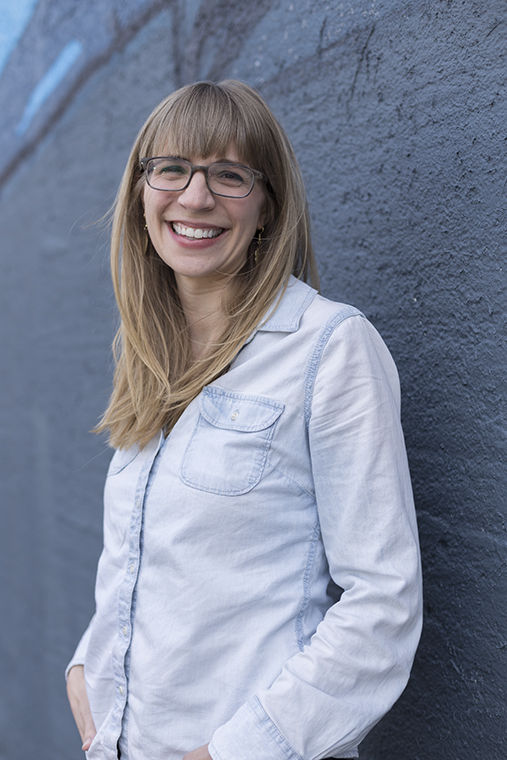Notable Native: Jennifer Leininger
Notable Native: Jennifer Leininger
April 10, 2017
When Jennifer Leininger started a master’s program in teaching five years ago, she noticed many of her fellow classmates were not discussing inclusive environments in schools for gender-nonconforming, gender-questioning and transgender students.
Meanwhile, as the manager of the Sex and Gender Development program at Ann & Robert H. Lurie Children’s Hospital, Leininger decided to create the education and community outreach portion of the program, for which she meets with school faculty to teach them gender-inclusive policies and procedures. Her individual casework with LGBTQ children and weekly circles with teens provide a network of support for the young, marginalized community.
The Chronicle spoke with Leininger about how her work is changing mentalities in schools around Illinois.
THE CHRONICLE: What motivated you to work directly with LGBTQ students in schools?
JENNIFER LEININGER: A lot of education programs talk about how to support the diverse needs of students, but they typically don’t include how to support the needs of transgender students. A lot of times teachers and administrative folk don’t know what to do. They don’t know how to answer questions from parents and peers of a transgender person. They don’t know what the practices are to have a supportive transition in their school.
The Illinois State Board of Education has mandates for including racial diversity in curricular inclusion, but they don’t have any mandates for including LGBTQ people in curriculum. We know that by not including gender diversity in schools, whether it’s policies or curriculum, it is basically telling those students that transgender people don’t matter and don’t exist.
Has the education you are providing brought about change in the schools you work with?
[I am] working with teachers on how to talk about gender in a diverse and nonbinary way, and to demonstrate and understand that gender is expansive. So students can see themselves reflected back in the curriculum.
The first year I offered school training and school-based support, I maybe did three or four in a year. Now, I am doing two or three in a week. More districts, schools, teachers and administrators are seeing that information on what to do and how to be supportive.
What lessons have you learned from LGBTQ students?
Every day that I do a training, I show videos because nothing is more important than showing the youths’ voices. Everything I have done, especially in schools, is informed by the youth that I work with. [Students] tell me, “Here is why pronouns are meaningful to me. Here is what it feels like when a teacher misgenders me.” I try to bring those voices into the training. The youths’ voices are the clearest way to build empathy and contextualize the importance of [educating teachers]. Young people are impacted by the things we do every day, and creating an environment where those voices are heard is important.
What is a moment that has stuck with you from teaching the program?
During one of our teen groups, a young person and I were talking about their involvement in school and what their school could be doing to support them. They said their teacher was misgendering them, meaning using the wrong name and pronouns. Not only did they feel unsupported, but they felt like they couldn’t engage in class. They couldn’t ask questions because they didn’t want their teacher to call on them and use the wrong name. It didn’t give them the same opportunities to learn, ask questions, be involved and engaged with their peers. [LGBTQ students] have the same potential to strive as their peers. They aren’t able to reach that same potential if the adults in the room don’t give them the same opportunities.
What is the most difficult part about your job?
There are not enough hours in the day. I try to go between managing the program itself and finding time to go out into the community. The best way to make change within a community is to show up, to drive out to Round Lake and Waukegan or wherever it may be and build those relationships.
Are the transgender students being affected by the nation’s current political climate?
It’s helpful for youths and their parents to know regardless of some [policies] changing, our commitment to them doesn’t change. If anything, it furthers my resolve to ensure that schools recognize and understand that regardless of what the federal government says [transgender people] have to do, it doesn’t really change what they should do. To me, it’s helpful to know that there also are protections within Illinois and reminding parents and adolescents that the Illinois Human Rights Act still protects them.
What is the most rewarding part of your job?
I am pretty lucky. I run this teen group once a month, and seeing people continue to come back and come out of their shell has been amazing. Maybe they have never had the opportunity to be friends with other trans people in the past. Seeing them connect with other youths and really open up—just be their true selves and their most outgoing or whatever selves they are—is really awesome. These young people are really bright, incredibly resilient and brave to live their lives as themselves every day, particularly when they are in communities [that] aren’t as supportive as they should be. Seeing them completely take on the world in that way is really amazing and it makes me want to do whatever I can to support them.
It’s my job to lift up the voices of the young LGBTQ people because they are the experts on their lives and their experiences. It’s my job as an adult ally to make sure their voices are heard. They are really making the change for themselves. I am just here to help support them as much as I can.








